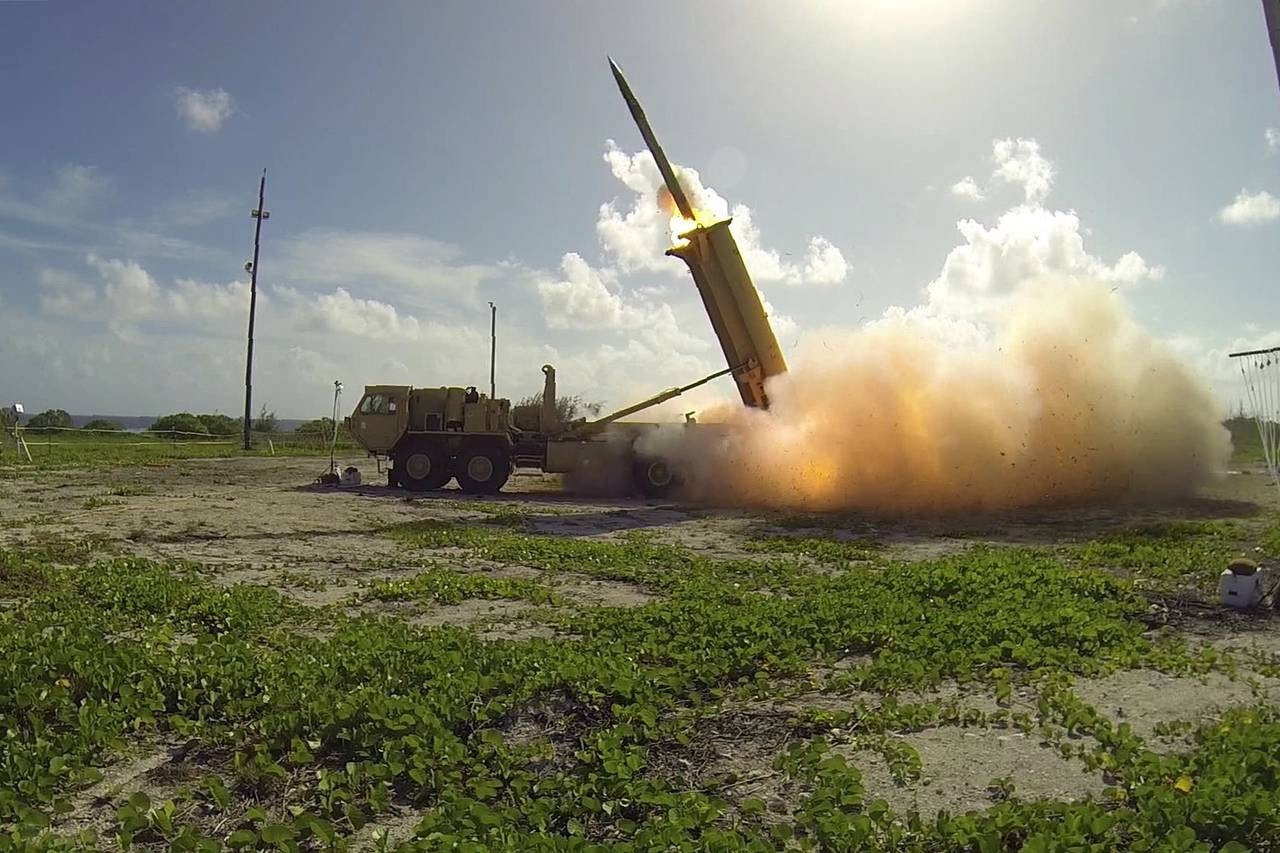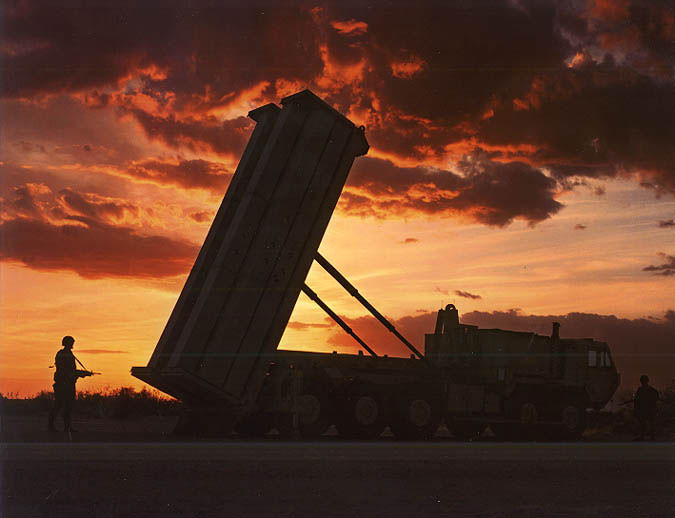The commander of Iran’s Islamic Revolutionary Guards Corps claimed Thursday that America’s anti-missile defense system would not be enough to protect Israel from Tehran, warning, “We will destroy you.”
IRGC Maj. Gen. Hossein Salami warned Israel against attacking Tehran in retaliation for the Oct. 1 ballistic missile barrage, saying that even the new Terminal High-Altitude Area Defense (THAAD) system would fail to secure Israel’s safety and victory in the conflict.
“Do not rely on THAAD, they have limited capabilities,” Salami said, according to Iranian state media.
“You cannot win this conflict, we will destroy you,” he added.
The Defense Department shipped the THAAD missile defense system earlier this month following Iran’s Oct. 1 strike and growing tensions with the Islamic republic and its terror proxies.
The THADD system generally consists of six, truck-mounted launchers, 49 interceptors and radio and radar equipment, with 95 soldiers needed to operate.
The system would bolster Israel’s defense, with several US destroyers and battleships already in the Middle East to help deflect any more barrages from Iran. The ships had previously assisted in intercepting Iranian fire in April and October.
While Israel has the Arrow and David’s Sling anti-missile systems to intercept even ballistic missile fire from across the border, the systems are not designed to take on such a large volume of rockets like the ones Iran has fired.
And the more famous Iron Dome system is primarily designed to guard against shorter-range rockets fired from Gaza or Lebanon.
The need for the THAAD system also comes as Israel reportedly faces a shortage of interceptor missiles after more than a year of enduring barrages from Hezbollah and Hamas.
The IDF estimates that Hezbollah and Hamas have fired more than 26,000 rockets and drones over the border since Oct. 7, the vast majority of which have been taken out by Israel’s defense systems.
“Israel’s munitions issue is serious,” Dana Stroul, an former-US defense official, told The Financial Times “If Iran responds to an Israel attack, and Hezbollah joins in too, Israel’s air defenses will be stretched.”
Iran Threatens Thousands of Missiles in Retaliation
This follows Iran's retaliatory missile strikes on Israel on 1 October, which caused minimal damage to military sites and no civilian deaths, and followed the killing of Hassan Nasrallah and other Tehran-linked figures in the region, hiking tensions between the two countries.
In addition to a barrage of a thousand missiles, Iran might also target Gulf shipping, escalate attacks from Tehran's regional proxy force, and possibly target regional energy facilities, likely to cause oil prices to skyrocket.
If Israel limits its strikes to military facilities with minimal damage, then Iran might not respond at all, the sources added.
Tehran officials have made public statements directed at Israel, warning it not to overstep the mark, after Tel Aviv vowed to respond to Iran's 1 October drone and missile strike - the biggest since the war on Gaza and Lebanon began in October 2023.
It has also made intense diplomatic moves to urge the US to restrain its ally Israel, amid threats to target Tehran's energy infrastructure, which could have devastating consequences for the oil exporter.
“In the event of an Israeli attack, the shape of our response will be proportionate and calculated,” Iran Foreign Minister Abbas Araghchi said at this week's BRICS summit in Russia this week.
The sources told The New York Times that the Iranian military is preparing for unrest within its borders with possible insurrections among minority groups or attacks by the Islamic State group.
Israel Remains Determined to Strike
Israel is reportedly adamant that a military response to 1 October strikes will happen, as occurred when Tehran launched missile strikes on Israel on 13 April following the killing of a senior IRGC general at an Iranian diplomatic compound in Damascus two weeks earlier.
The question is, how broad the military action will be and what role Washington might play with the US deploying THAAD anti-missile batteries to Israel, indicating that the response could be major.
Israel is said to have delayed its response after details of a planned attack on Iran were leaked from the US, the security breach possibly hinting at some concerns in Washington about the response on the table.
Defence Minister Yoav Gallant confirmed this week that an attack from Israel was coming.
“In my conversation with them I emphasised - after we attack Iran, everyone will understand your might, the process of preparation and training - any enemy that tries to harm the state of Israel will pay a heavy price,” he wrote on X after speaking with US officials.
The War Continues
Israel launched a devastating war on Gaza following the 7 October attacks, and escalated its military actions in Lebanon this month, leading to tens of thousands of civilian deaths. The ongoing conflict between Israel and Iran has intensified in recent weeks with the latest round of retaliatory attacks. The potential consequences of an Israeli strike against Iran remain uncertain, and the possibility of a wider regional war remains a concern.


















